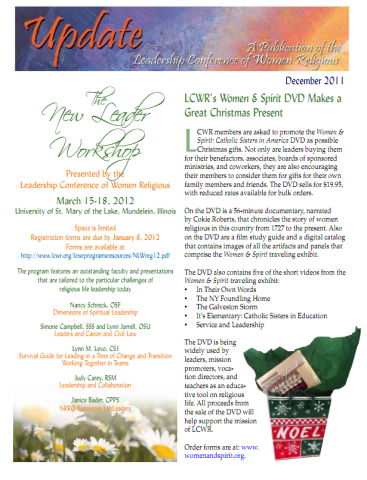
Promoting the Common Good
During the August LCWR annual assembly in California, those present read the signs of the times and saw a country wounded by partisanship and disparities of wealth and power. They called for a return to civil discourse that “promotes the common good, reaches out to others, engages in constructive dialogue, and seeks together the way forward.” Committing themselves to do the same, they promised “to hold these concerns at the center of our prayer and to respond in love.”
Since then, I have noticed others reading the same signs.
- This fall in my home state of Wisconsin two state senators, a Republican and a Democrat, traveled together in a Common Ground Tour of each other’s legislative district and held joint town hall meetings. They also highlighted areas of agreement with “Ten Ideas for Ten Years” as a starting point for a bipartisan agenda. Last summer political partisanship resulted in recall elections for nine state legislators, and a petition drive is now underway to recall our new governor and four senators, so their bipartisan actions are especially meaningful.
- A Republican city legislator who had served in the military put bipartisanship into perspective: “I literally sat down with al-Qaida in Iraq. I think I can sit down with Democrats.”
- During observances of the tenth anniversary of 9/11, many remembered the unity of the aftermath and called for its return. Bishop Ramirez of Las Cruces, New Mexico said that the sad anniversary “calls us to recommit ourselves to the common good” and challenges us to look beyond our differences, including political and ideological. In particular he called on leaders to work together “to fix a broken economy, reduce deficits and debt, and do so in ways that protect the poor and vulnerable.” He noted that creating a lasting peace with justice needed respectful dialogue at all levels, including parish and local communities.
- In the 2011 introduction to Forming Consciences for Faithful Citizenship: A Call to Political Responsibility from the Catholic Bishops of the United States the bishops named “civil and respectful public dialogue” as a goal in addition to the formation of consciences and preparation for voting in light of Catholic social teaching. Bringing together our values and our votes, we help to build a better world.
by Florence Deacon, OSF — LCWR President-Elect
Publication Type:
